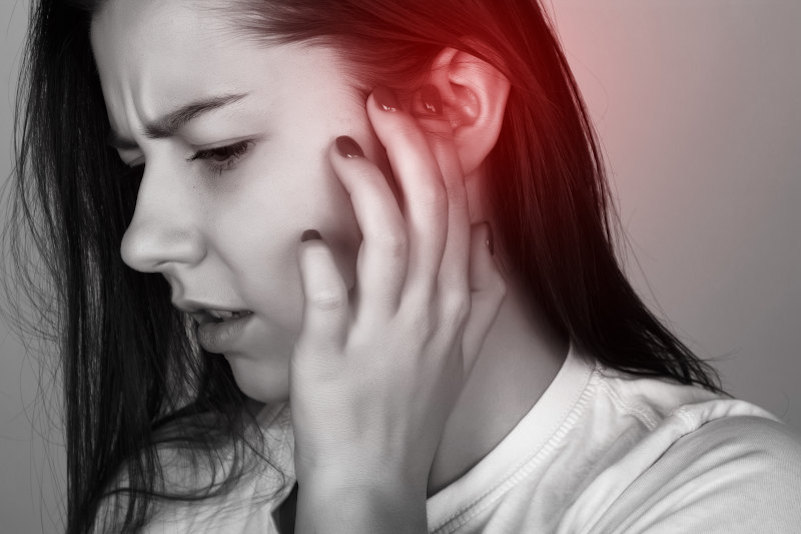Ear Infection - Your Quick Guide To Diagnosis And Treatment
Ear infection is a common medical condition that affects individuals of all ages. These infections can cause a range of symptoms, including pain, reduced hearing, and discharge from the affected ear.
Author:Karan EmeryReviewer:James PierceFeb 14, 202358 Shares1.6K Views

Ear infectionis a common medical condition that affects individuals of all ages. These infections can cause a range of symptoms, including pain, reduced hearing, and discharge from the affected ear.
While some ear infections resolve on their own, others require medical treatment to prevent complications and promote healing.
What Is Ear Infection?
An ear infection, also known as otitis media, is a condition in which the middle ear becomes inflamed and infected. This can be caused by a variety of factors, including bacteria, viruses, and environmental irritants.
The middle ear is located behind the eardrum and contains the tiny bones responsible for transmitting sound from the outer ear to the inner ear. When fluid builds up in the middle ear as a result of infection, it can cause pain, reduced hearing, and other symptoms.
There are several types of ear infections, including acute otitis media, which is a sudden and severe infection, and otitis media with effusion, which is a less severe form of infection characterized by the accumulation of fluid in the middle ear without symptoms of acute inflammation.
Some people are more prone to ear infections than others, such as young children and individuals with weakened immune systems. Treatment for ear infections typically involves antibiotics or other medications to reduce inflammation and promote healing.
In some cases, surgery may be necessary to remove fluid or treat underlying conditions.
Types Of Ear Infections
There are several types of ear infections, each affecting different parts of the ear. The most common types include:
- Acute Otitis Media (AOM):A sudden and severe infection of the middle ear that is often accompanied by pain and a fever.
- Otitis Media with Effusion (OME):A less severe form of infection characterized by the accumulation of fluid in the middle ear without symptoms of acute inflammation.
- Chronic Otitis Media:A persistent or recurring infection of the middle ear that can cause damage to the ear drum and other structures.
- External Otitis (Swimmer's Ear):An infection of the outer ear canal caused by bacteria or fungus, often as a result of exposure to water.
- Inner Ear Infections (Labyrinthitis):A rare but serious infection of the inner ear that can cause vertigo, hearing loss, and balance problems.
Each type of ear infection has its own set of symptoms and risk factors, and effective treatment may vary depending on the specific type of infection and individual factors, such as age and underlying medical conditions.
It is important to seek medical attention if you suspect you have an ear infection, as prompt and appropriate treatment can help prevent complications and promote healing.

Ear Infections 3 types
Ear Infection Diagnosis
Diagnosis of an ear infection typically begins with a physical examination and a review of your symptoms. Your doctor may use a lighted instrument called an otoscope to look inside your ear and assess the extent of the infection. They may also perform a hearing test to evaluate any potential hearing loss.
In some cases, your doctor may order additional tests to confirm the diagnosis or rule out other potential causes of your symptoms. These tests may include:
- Tympanometry- A test that measures the movement of the eardrum in response to changes in air pressure, to determine if there is fluid buildup in the middle ear.
- Imaging tests- X-rays, CT scans, or MRI scans may be used to visualize the structures inside the ear and assess the extent of any damage or fluid accumulation.
- Fluid culture- A sample of fluid from the affected ear may be taken and tested to identify the type of bacteria or virus causing the infection, which can guide treatment.
Ear Infection Treatment
Once a diagnosis is made, your doctor will work with you to develop an appropriate treatment plan, which may include medications, home remedies, or other interventions to manage your symptoms and promote healing.
Treatment for an ear infection typically depends on the type of infection, as well as individual factors such as age, overall health, and severity of symptoms. Some common treatments for ear infections include:
- Antibiotics- Antibiotics may be prescribed to kill the bacteria causing the infection. The specific type of antibiotic and duration of treatment will depend on the type of bacteria and severity of the infection.
- Pain relief- Over-the-counter pain relievers, such as ibuprofen or acetaminophen, can help reduce pain and discomfort associated with an ear infection.
- Decongestants- Decongestants may be recommended to reduce fluid buildup in the middle ear, which can relieve pressure and promote healing.
- Antihistamines- Antihistamines may be recommended to reduce inflammation and relieve symptoms such as itching, redness, and swelling.
- Surgery- In some cases, surgery may be necessary to drain fluid from the middle ear or treat underlying conditions that are contributing to the infection.
In addition to these treatments, it is also important to take steps to prevent future ear infections, such as avoiding exposure to irritants, maintaining good hygiene, and avoiding contact with individuals who have infections.
Your doctor may also recommend additional measures, such as using earplugs while swimming or avoiding smoking, to help reduce your risk of future ear infections.
It is important to follow your doctor's instructions and attend all follow-up appointments to ensure the best possible outcome.
If you have any concerns or questions about your treatment, be sure to discuss them with your doctor to ensure you receive the care you need to recover and get back to your normal activities.
Homeopathic Medicines For Ear Infection
- BELLADONNA:Belladonna is used to treat excruciating earaches caused by sudden onset ear issues.The drug is taken from the leaves and root of a plant that produces a flower with five lobes and berries that resemble cherries. It is used to treat fever-accompanied ear infections. Additionally, belladonna helps alleviate symptoms such as tiredness, dullness, and lethargy.
- CHAMOMILE:Chamomile is effective for treating ear discomfort that is so severe that even the slightest contact makes it worse. This kind of condition causes anger and irritability, and Chamomilla may be of great assistance. This medication is available in oral, inhalation, and topical formulations.
- MERCURIUS SOL: Mercurius sol is recommended when the ear infection has progressed to the point that pus is being expelled. Blood also starts to leak out of the ear, which can be very painful or make a roaring sound. This homeopathic medicine is used to treat earaches, as well as sensitivity to temperature, bad breath, a swollen tongue, swollen lymph nodes, and other things.
- PULSATILLA: Pulsatilla is a homeopathic drug that helps treat a post-cold ear infection. It may help alleviate other symptoms, such as ear swelling and warmth. Cold-induced ear infections with green ear secretions are treated with this medication.
- KALI MUR:It is advantageous when the ear infection creates white-colored discharges.
- CALCAREA SULPH: This is an appropriate treatment for an ear infection characterized by a yellow, viscous ear discharge.
- SILICEA:Silicea is effective in absorbing pus generated by an ear infection.
- PSORINUM:If the infection causes an offensive, putrid, brownish-colored, fetid ear discharge and also itches intolerably, then Psorinum is prescribed.
- TELLURIUM:When ear discharge is acrid, has a fishy odor, and is very irritating, Tellurium is a good prescription to treat it.
- HEPAR SULPH:If an ear infection occurs with pus-like discharges and fever, then Hepar Sulf is the best prescription.
People Also Ask
How Long Does It Take For An Ear Infection To Go Away?
The duration of an ear infection can vary depending on the type of infection and the individual. Mild infections may clear up on their own within a few days, while more severe infections may require medical treatment and can take several weeks to heal.
Can Ear Infections Be Prevented?
There is no guaranteed way to prevent ear infections, but there are steps you can take to reduce your risk. These include avoiding exposure to secondhand smoke, washing your hands frequently, and avoiding activities that increase the risk of swimmer's ear (such as swimming in contaminated water).
Is It Safe To Fly With An Ear Infection?
Flying with an ear infection can be uncomfortable and may worsen symptoms, but it is generally safe. However, if you are experiencing severe pain or other symptoms, it is best to consult a healthcare provider before flying.
Can Ear Infections Be Treated At Home?
Mild ear infections may be treated at home with over-the-counter pain relievers and rest. However, if the symptoms persist or worsen, it is best to consult a healthcare provider.
Can Ear Infections Cause Permanent Damage?
If left untreated, an ear infection can cause permanent damage to the eardrum or inner ear. This is why it is important to seek medical treatment if you suspect you have an ear infection.
Final Words
Ear infection is a common and sometimes painful condition that can affect people of all ages. By understanding the various types of ear infections, their symptoms, and effective treatment options, individuals can take steps to manage their condition and reduce their risk of future infections.
If you suspect you have an ear infection, it is important to seek medical attention as soon as possible to prevent complications and promote healing. With prompt and appropriate treatment, most ear infections can be successfully treated and managed.

Karan Emery
Author

James Pierce
Reviewer
Latest Articles
Popular Articles